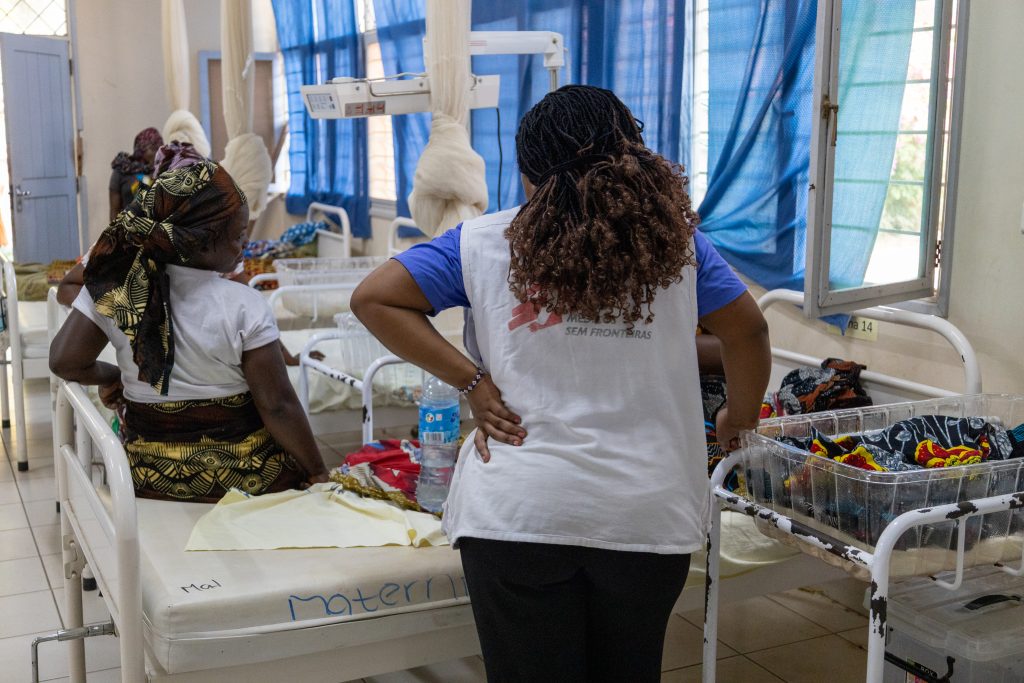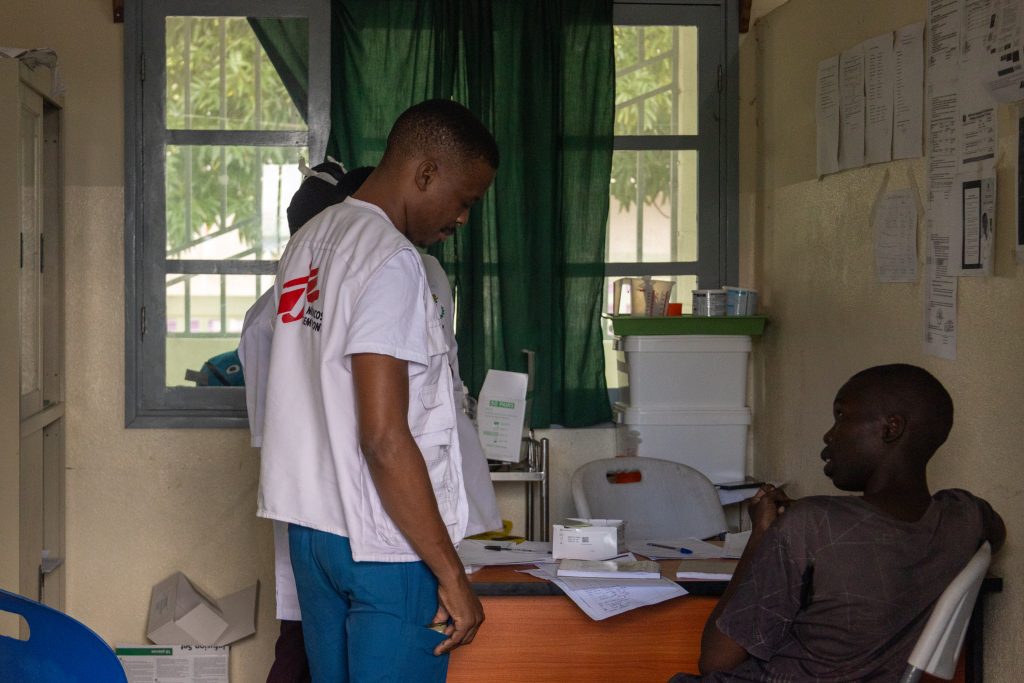Pemba, 16 July 2025– As Cabo Delgado experiences an alarming rise in violence, access to healthcare for communities in vulnerable circumstances is being severely compromised. Nearly eight years of conflict in northern Mozambique has already take a huge toll on people living in the province, where more than 400,000 people are displaced. Fighting and insecurity have led to the forced reduction of medical activities and have limited the movements of health workers and the communities in the affected areas. Médecins Sans Frontières/Doctors Without Borders (MSF) is calling for the protection of medical workers and health facilities from violence, and to ensure a coordinated humanitarian response in places experiencing a surge of needs due to the arrival of displaced people.
Already in 2025, 43,000 people have been newly displaced following attacks and violent incidents. and over 134,000 people were affected by violence in May alone, according to OCHA1. This is the most significant rise in violence since June 2022. Many of these recent violent incidents took place in the district of Macomia, Mocímboa da Praia, Muidumbe and Meluco, and even spread to neighbouring Niassa province.
Macomia, a major town in central Cabo Delgado, was attacked by a non-state armed group in May 2024, forcing MSF, as well as other humanitarian organizations, to stop or suspend activities. We were gradually able to resume operations in April 2025. More than a year after the attack, only one health facility is operational in the district, compared to the seven health centers that were functional before.
The situation in Macomia illustrates the fragility of the health system in Cabo Delgado, a pattern repeated across the three other districts where MSF is present: Mocímboa da Praia, Mueda and Palma. Since the conflict began, more than fifty percent of the province’s health facilities have been completely or partially destroyed, according to official data. This was further worsened when Cyclone Chido struck southern parts of Cabo Delgado late last year.
At the same time, many health facilities are non-functional due to the absence of health workers; services are frequently suspended or reduced, particularly in hard-to-reach areas, and many of the functional facilities are under-resourced or located too far for many people to access safely.
In 2025, MSF was forced to suspend outreach activities five times due to insecurity, for at least two weeks at a time, particularly in Macomia and Mocímboa da Praia. This left thousands of people without access to healthcare and jeopardized the continuity of care for patients

MSF teams provide basic healthcare, treatment for HIV and TB, sexual and reproductive health services, mental health support as well as maternity and pediatric care. We also carry out donations of medicines and medical supplies, and provide water and sanitation services. Between January and May 2025, MSF carried out a monthly average of 18,000 medical consultations (both inpatient and outpatient), 30 referrals of patients in need of specialized care and 740 deliveries were assisted across the four districts where we operate.
The limitations – and sometimes inability – to offer care due to this volatile context has a deep impact on the community. This is evident in our medical data: in April, our teams in Mocímboa da Praia carried out 12,236 outpatient consultations. In May, as incidents intensified, that number dropped drastically to 1,951.
A crucial part of MSF’s response is carried out by health promotion teams and community health workers known as APEs (Agentes Polivalentes Elementares). They work with communities to share essential health information and promote healthy practices, such as handwashing and water treatment to prevent waterborne diseases. MSF trains some of these workers to identify and treat common diseases, such as malaria, a leading cause of death in the region, and to process the referral of patients in need of specialized care.
In addition to suffering acute psychological distress and trauma, some patients are forced to interrupt their treatments. This is particularly concerning for pregnant women, older adults, people with disabilities, and people living with chronic conditions or HIV.

Recent cuts in humanitarian aid continue to worsen the situation in Cabo Delgado. These funding shortfalls illustrates the broader global issue: the collective ability to respond to people’s needs is collapsing across all sectors and organizations. “Cabo Delgado’s conflict has become a severe humanitarian crisis,” says Dr. Finiose. “It affects every aspect of life, especially healthcare and education, and it strips people of their dignity. We need safe access to communities in need and support from other actors so we can help them cope with the consequences of this crisis.
-
Related:
- Mozambique
- MSF in Mozambique












